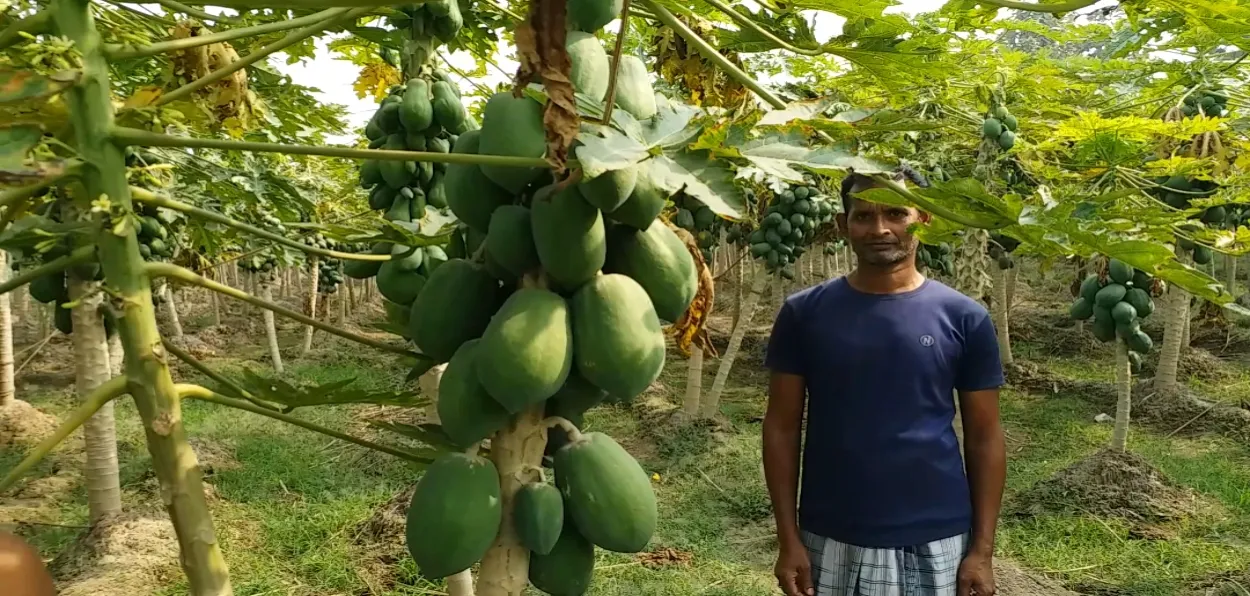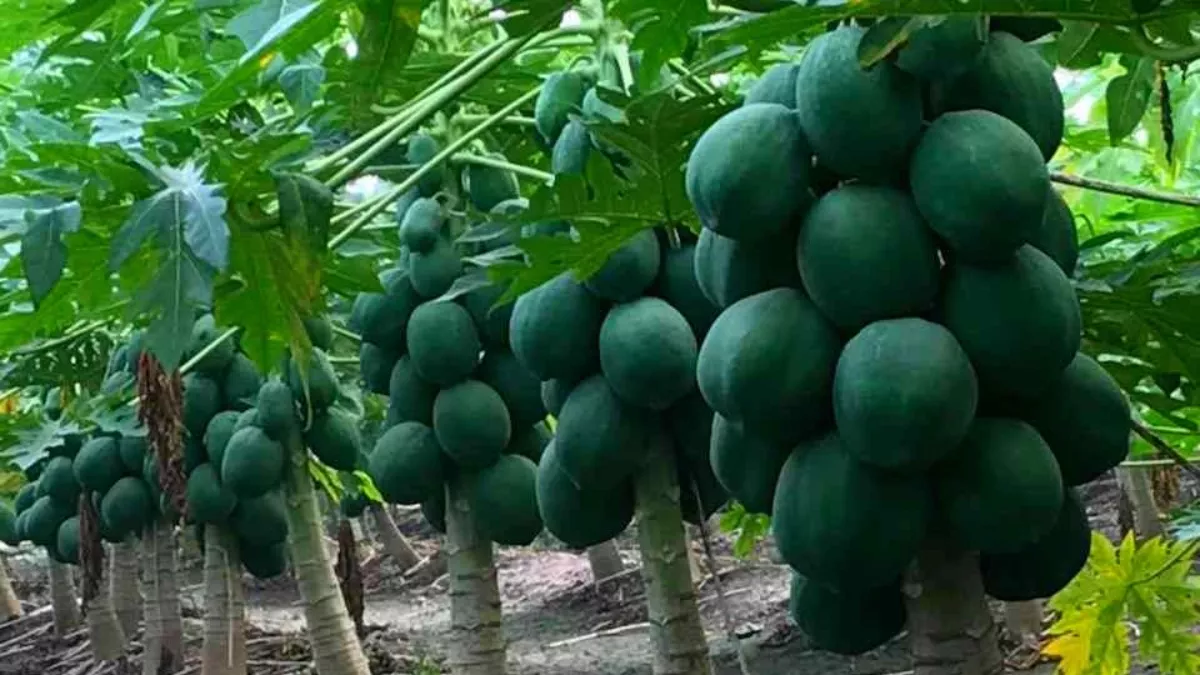
Seraj Anwar/Patna
Bhadeja, a Muslim-majority village in Bihar is responding well up to Prime Minister Narendra Modi's clarion call to Indians for self-reliance. This village in the Gaya district is the hub of Papaya farming. The economic boom because of the Papaya makes one look at their humble fruit in a new light.
In the village, each farmer's turnover from papaya sales runs into lakhs. This is also leading to the social phenomenon of reverse migration - young and educated people working in big cities are returning to their villages to take up Papaya farming.
More farmers have shifted to Papaya cultivation jettisoning traditional crops like paddy-wheat etc in the last few years.
Farmers say the Papaya cultivation is popular because of its low input costs and high yields. The farmers have turned it into a cash crop like rubber, cashews spices, etc.
Mohammad Irfan, a local farmer grows Papaya in his 23 katha land. He says the crop is like gold.
Two decades ago, some farmers planted Papaya on the edges of the fields. This gave good benefits and this made more farmers give up on the time-consuming and labor-intensive traditional crops for it.
Papaya fields of Bhadeja
These days more than 50 farmers have taken to Papaya cultivation. These days, the ‘desi’ variety of the fruit is being cultivated in about 25 bighas in the village.
Bhadeja, located in the Manpur police station area adjacent to Gaya city, is a Muslim-majority village. About 80 percent of the population of the village is dependent on agriculture. The number of Muslims in farming is more than 95 percent and most of them are into Papaya cultivation.
The farmers have land ranging from one katha to 15 bighas.
According to farmers Muhammad Irfan and Ghulam Mustafa, more than 70,000 Papaya trees have been planted in the village.
However, they say taking care of the saplings is not easy because the area is prone to unseasonal rains, storms, and hailstorms. Also, it’s a challenge to keep the plants secure from wild animals and thieves.
Irfan has planted Papaya of indigenous variety on 23 katha of land. He says there is a demand for ‘desi variety. He sells it in the Gaya market at a wholesale price of Rs 35-40 per kg. His farm produces at least 1500 quintals of papaya.
Irfan is also an AC mechanic by profession. He says his father started papaya cultivation 25 years ago. Initially, Papaya saplings were planted on the ridges of the field. This brought income and after seeing his success, more people started cultivating the fruit.
Irfan says realizing they could make good earnings from Papaya; farmers of other villages have also taken to it.
Irfan says it’s not a plant-and-forget kind of cultivation. Irfan says they have to use chemical spray to address Mealybug infestation; and requires regular weeding every three days, especially during summer. Besides, it has to be watered carefully because an extra amount of water leads to root rot.
Today more than 50 farmers of the village cultivate it. He says, “Our village is the only one in the district where Papaya cultivation is done on a large scale.

A Papaya farm in Bhadeja
Irfan claims the local variety of Papaya is very sweet. It takes about two years for Papaya to be ready for fruiting. The climate of Gaya is suitable for its cultivation. The saplings are transplanted in the month of August-September. In about two years it bears fruit.”
Even during the cold season, farmers have to spend the night in the field to take care of papaya. For this, farmers have made tree-top houses in their orchards.
The papaya from the village is sent across the country and the monthly trade in it in Bhadeja is approximately Rs 40 lakh.
Bhadeja is now called the Papya village of Bihar as there are more than 70,000 papaya trees in the village.
On the occasion of festivals, especially during Ramzan and Navratri, the fruit is also supplied to other states.
Papaya cultivation has made Bhadeja’s farmers self-reliant and agriculture a lucrative profession.
Muhammad Irfan says notwithstanding all the hard work, papaya cultivation is highly profitable.
“If it is properly taken care of and white insects (mealybugs) don’t infect it a tree can yield up to one quintal of fruit. Each Papaya weighs from 1 kg to 5 kg.”
The Papaya tree yields fruits for at least two years. Irfan says it gives the family Rs 5 lakh income per annum.
ALSO READ: Badalta Kashmir: Rap sensations Humaira and MC Raa sang what they saw around
Ghulam Mustafa says that Papaya cultivation is expected to grow in the area because a lot of educated youth who were working in far-off cities have returned to take up agriculture on their ancestral farms.
